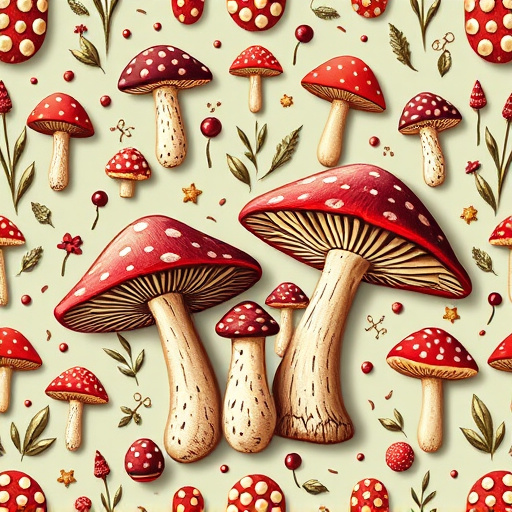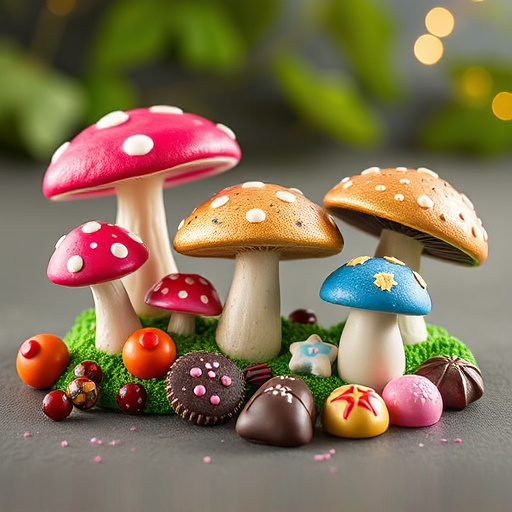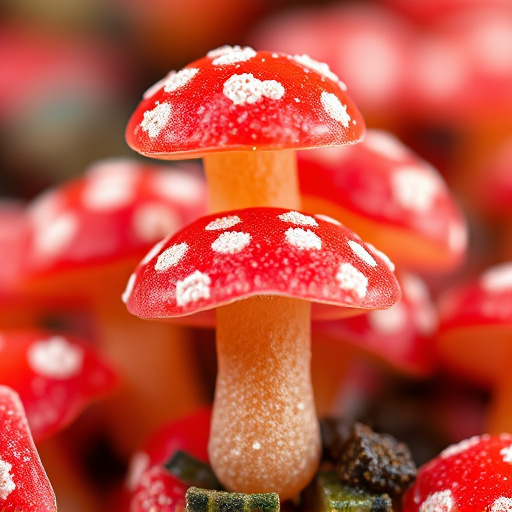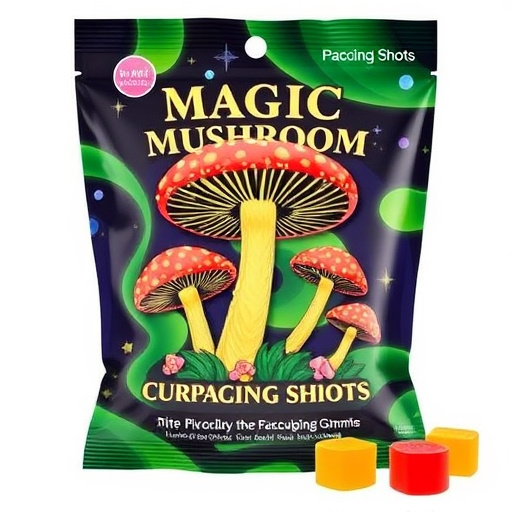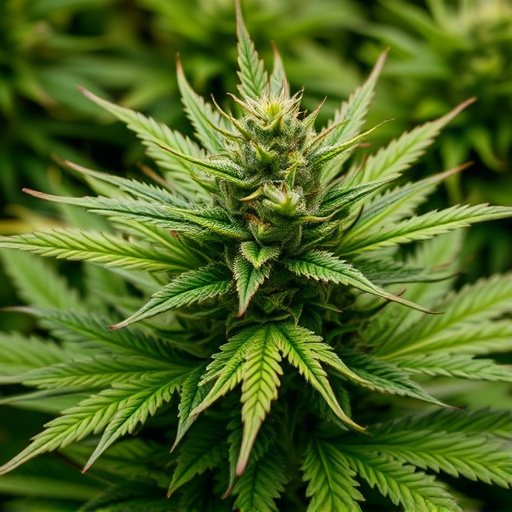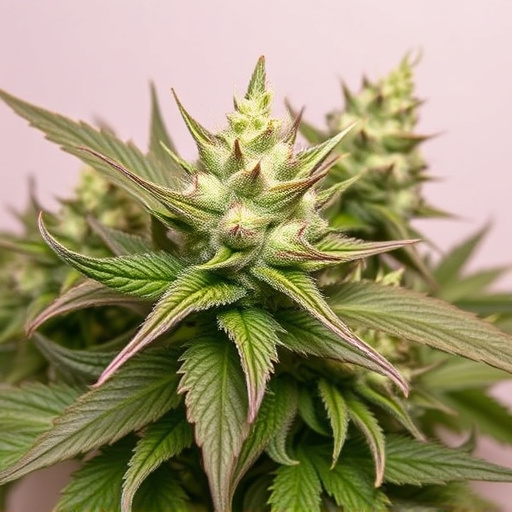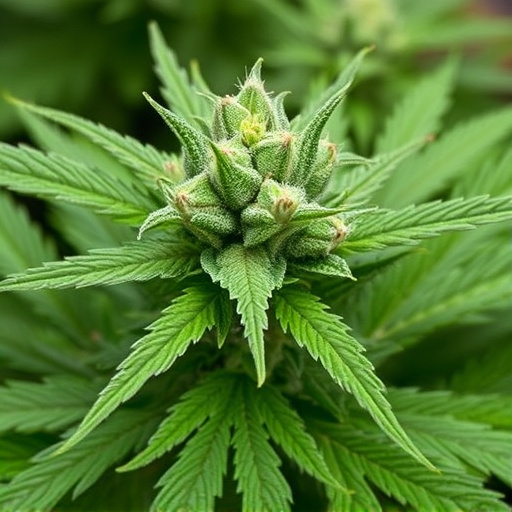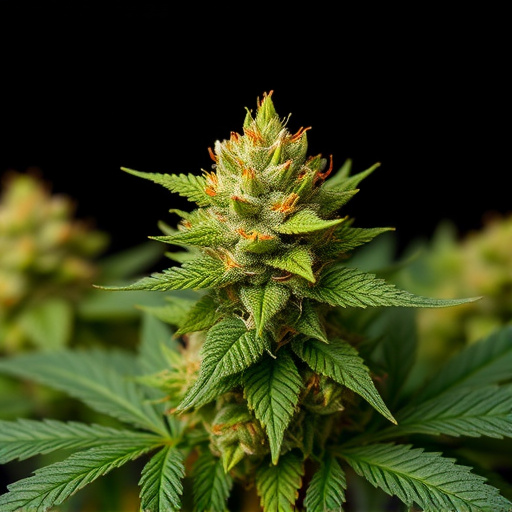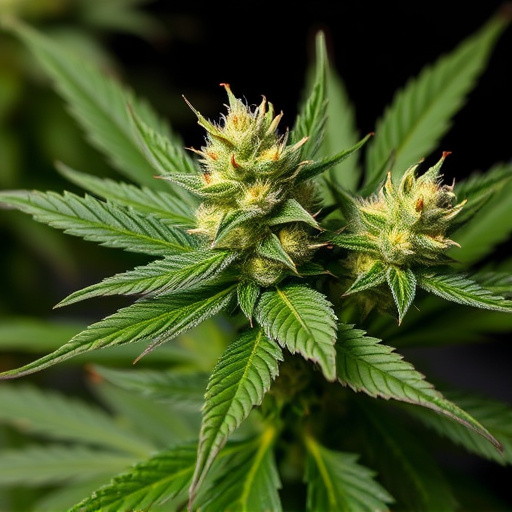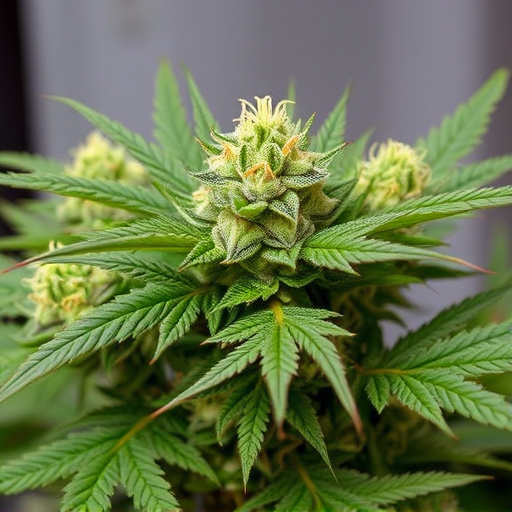Sour cannabis strains, rich in THC and CBD, interact with the body's endocannabinoid system by targeting dopamine and serotonin receptors. This interaction leads to varied effects on brain chemistry, from heightened senses and altered time perception to changes in mood like euphoria or relaxation. High THC levels enhance dopamine activity, influencing reward-related behaviors but potentially causing anxiety. Serotonin levels may also be indirectly modulated, offering potential therapeutic benefits for depression and anxiety. Sour strains' unique terpene profile further contributes to their positive effects on mood and cognitive function.
Cannabis has long been known for its effects on the mind, but understanding how it interacts with specific neurotransmitters like dopamine and serotonin is crucial. This article delves into the complex relationship between cannabis and these chemical messengers, shedding light on both the immediate and potential long-term impacts. We explore how the unique compounds in sour cannabis strains can alter brain chemistry, focusing particularly on their effects on mood. By examining these interactions, we aim to provide insights for both enthusiasts and those curious about cannabis’s role in mental health.
- Understanding Dopamine and Serotonin: The Neurotransmitters Explained
- The Impact of Cannabis on Dopamine and Serotonin Systems
- How Sour Cannabis Strains Affect Brain Chemistry and Mood
Understanding Dopamine and Serotonin: The Neurotransmitters Explained
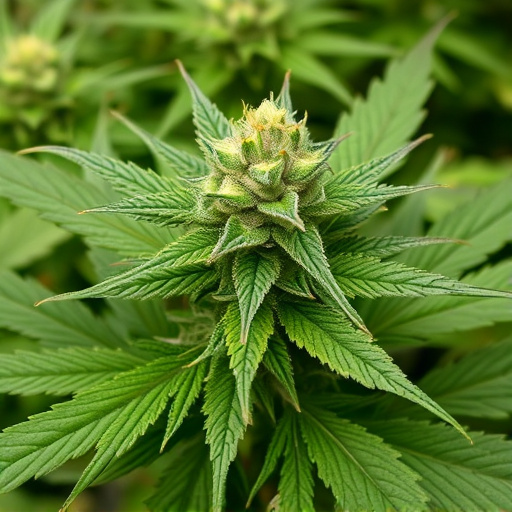
Dopamine and serotonin are two key neurotransmitters, or chemical messengers, in our brain that play a significant role in regulating mood, motivation, and pleasure. Dopamine is often associated with reward, motivation, and movement, while serotonin influences social behavior, cognitive function, and emotional regulation. When we consume sour cannabis strains, these powerful chemicals come into play, triggering various effects on the body and mind.
Cannabis contains compounds called cannabinoids, such as THC (tetrahydrocannabinol) and CBD (cannabidiol), which can interact with our endocannabinoid system, a complex network of receptors and enzymes that help maintain homeostasis. When consumed, certain cannabinoids bind to dopamine and serotonin receptors, influencing their activity. This interaction can lead to the wide range of effects associated with cannabis use, including heightened sensory perception, altered time perception, and changes in mood, often described as euphoria or relaxation, depending on the strain and individual user.
The Impact of Cannabis on Dopamine and Serotonin Systems
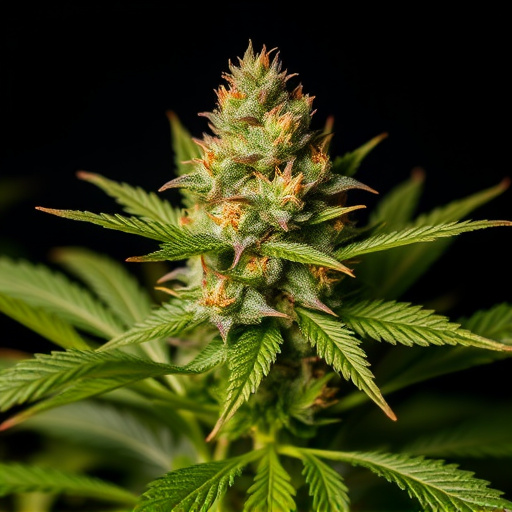
Cannabis has a complex relationship with the brain’s dopamine and serotonin systems, which play pivotal roles in reward, mood regulation, and cognition. While the exact mechanisms are still being unraveled, research suggests that cannabis interacts with these neurotransmitter systems through its effects on receptors like CB1 (cannabinoid receptor type 1) and CB2 (cannabinoid receptor type 2). Stimulating these receptors can lead to the release of dopamine and serotonin, resulting in the associated euphoric feelings and potential therapeutic effects.
The impact varies depending on the specific profile of cannabis strains, with sour cannabis strains known for their higher THC content often enhancing dopamine activity due to its binding affinity for CB1 receptors. This activation can increase reward-related behaviors and mood elevation but may also lead to adverse effects like anxiety or paranoia in some individuals. On the other hand, serotonin levels might be influenced by cannabis through indirect mechanisms, such as modulating the activity of serotonin transporters, offering potential benefits for conditions like depression and anxiety.
How Sour Cannabis Strains Affect Brain Chemistry and Mood
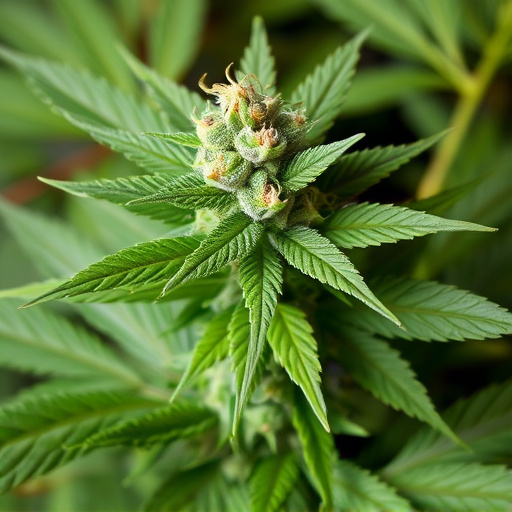
Sour cannabis strains, known for their tart aroma and flavor, offer unique effects beyond just their sensory appeal. These strains typically have higher levels of certain cannabinoids, like THC and CBD, which can significantly impact brain chemistry. When consumed, they interact with the endocannabinoid system (ECS), a complex network of receptors involved in regulating mood, memory, and pleasure. The ECS plays a crucial role in balancing dopamine and serotonin, two neurotransmitters vital for emotional well-being.
The specific terpene profile of sour strains also contributes to their effect on mood. Terpenes like limonene, known for its citrusy scent, have been linked to improved mood and cognitive function. In combination with cannabinoids, these terpenes can enhance the overall therapeutic experience, potentially offering users a more lifted and positive state of mind. This interaction between various compounds in cannabis showcases the complex ways sour strains can affect brain chemistry and contribute to varied emotional responses.
In conclusion, cannabis, particularly sour cannabis strains, significantly influences brain chemistry by interacting with dopamine and serotonin systems. The understanding of these neurotransmitters and their role in mood regulation is essential. Research reveals that cannabis can enhance or disrupt these systems, leading to various effects on mental state and well-being. Sour strains, known for their unique therapeutic properties, offer promising avenues for managing mood disorders while highlighting the complex relationship between cannabis and brain chemistry.
